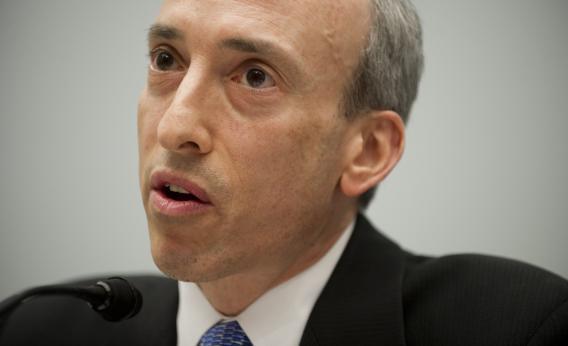Say what you will about JPMorgan’s stupid trades, the bank has at least owned up to its failings. That’s more than can be said for some U.S. authorities, who are exploiting the fiasco to point fingers at their UK counterparts. This convenient distraction is really an effort to grab international power. The best hope is it revives dragging global efforts to coordinate the rules.
Britain-bashing escalated on Capitol Hill last week. Gary Gensler, chairman of the U.S. Commodity Futures Trading Commission, spearheaded the rhetoric, rattling off anecdotal examples of risky dealings in London that came “crashing back to our shores.” They included AIG’s financial products unit, the London affiliate of Lehman Brothers and Citigroup’s off-balance-sheet vehicles.
Carolyn Maloney, a Democratic representative from New York, pinned the problem on Britain’s financial capital, too. “It seems to be that every big trading disaster happens in London,” she said. Maloney pressed JPMorgan’s primary regulator, Comptroller of the Currency Thomas Curry, about shifting more resources from the Potomac to the Thames.
It’s all a bit of sleight of hand. London is a big financial center bound to have its fair share of misdeeds. But for every AIG, Citi, or JPMorgan trader, there’s a Long Term Capital Management, MF Global and Bernie Madoff that operated unnoticed by U.S. watchdogs. In JPMorgan’s case, there’s no reason the Whale’s trading positions couldn’t have been more closely scrutinized in New York.
Broadly speaking, London may be known for a lighter touch and Washington for tougher enforcement on certain matters. But the American regime is also hamstrung by overlap and turf wars between rival agencies. Witness Gensler’s attempt to extend his reach by applying U.S. swaps rules internationally. That bold initiative also looks like a stab at enveloping other regimes in the U.S. web.
The opportunism fills a void. Following the crisis, the G20 agreed to take steps to bring financial regulation into better accord. There has been little visibility on such initiatives, if they have happened. The euro zone mess is a distraction. But if global authorities don’t get their acts together, U.S. regulators will continue to use every misstep as a reason to extend their reach.
Read more at Reuters Breakingviews.
